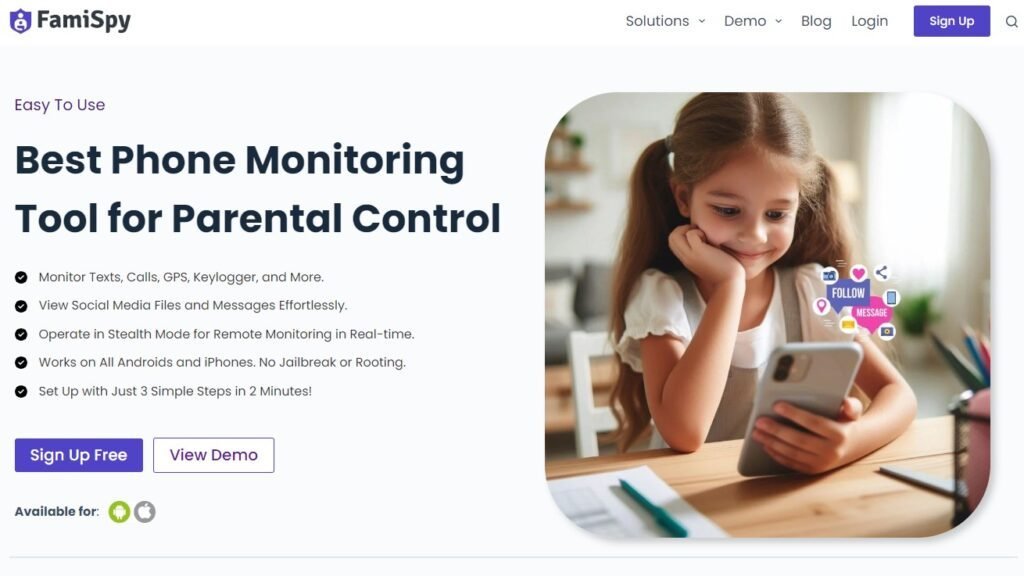The digital world presents unique challenges for parents, and chief among them is understanding the risks associated with WhatsApp sexting. This term refers to the exchange of sexually explicit messages or images via the WhatsApp platform. For parents, the essential takeaway is this: While teens often view this activity as harmless communication, it carries severe and irreversible risks, including legal repercussions, privacy breaches, and emotional trauma. Understanding how and why this happens is the first step; implementing proactive tools and fostering open communication are the keys to successful protection.
What is ‘Sexting on WhatsApp’ and Why Teens Do It?
Understanding Sexting on WhatsApp
Sexting on WhatsApp is simply the practice of sending explicit text, images, or videos over the popular messaging application. Unlike traditional SMS, WhatsApp’s end-to-end encryption and ephemeral features (like “View Once”) often create a false sense of security, making it a preferred platform for engaging in sexting.

Why Teens Engage in Sexting
For parents to effectively address the issue, they must understand the root causes. Teenagers often engage in WhatsApp sext communication due to:
- Peer Pressure and Validation: Seeking acceptance or proving maturity within social circles.
- Curiosity and Exploration: A natural, albeit risky, way to explore their developing sexuality.
- Relationship Intimacy: Viewing it as a sign of trust or a way to deepen a romantic relationship.
The Legal and Emotional Dangers of Sending Nudes on WhatsApp
The act of sending nudes on WhatsApp or sharing any explicit content can have devastating, long-term consequences that far outweigh the temporary thrill. Parents must clearly communicate these dangers to their children.
Immediate Privacy and Exposure Risks
The biggest danger is the loss of control. Once an image is shared, even with the “View Once” feature, there are ways to capture and save the content (e.g., screenshots on another device). This puts teens at risk of:
- Non-Consensual Sharing: An ex-partner or acquaintance could distribute the images widely (often called “revenge porn”).
- Digital Footprint: The content can reappear years later, potentially harming future educational or professional opportunities.
Serious Legal Repercussions
Depending on the jurisdiction, nudes on WhatsApp involving minors can quickly escalate from a privacy issue to a criminal matter. If a minor is involved, sharing or possessing such content can be treated as child pornography, leading to felony charges for both the sender and the receiver. This is the single most critical risk to communicate to your teen.
The Myth of “Free WhatsApp Sexting” and Stranger Danger
Parents should be particularly wary of the term “free WhatsApp sexting”. This phrasing often masks online scams, catfishing attempts, or exploitation. Teens who seek out “free” or “easy” ways to engage in sexting are typically exposed to:
- Online Extortion: Strangers may pressure teens to send images, then use those images to demand money or further explicit content.
- Age Gaps: Predators posing as peers to groom young people.
A Parent’s Guide to Monitoring WhatsApp Sexting Chats
Being a proactive parent means being informed. Knowing your child is engaging in WhatsApp sexting chat is the first step toward intervention and protection.
Open Communication vs. Digital Supervision
While open dialogue is always the gold standard, many teens are naturally secretive. This is where a reliable, ethical digital tool becomes necessary for safety, not just spying.
How FamiSpy Can Help Protect Your Teen
The FamiSpy parental control app provides the visibility you need to ensure your child’s safety without resorting to invasive methods.

- Comprehensive Chat Monitoring: FamiSpy allows parents to view the full content of their child’s WhatsApp sexting chat and other messaging apps, including all text, shared images, and videos. This comprehensive access enables quick intervention against bullying or predatory behavior.
- Powerful Keylogger Functionality: Utilize FamiSpy’s Keylogger feature to record every keystroke typed across all apps, including WhatsApp. This captures hidden intent—such as risky phrases, secret locations, or searches—that may not appear in standard chat logs.
- Activity Reporting: Provides a clear overview of app usage, helping you identify if your child is spending an excessive amount of time on high-risk apps.
How to Talk to Your Teen: A Communication Roadmap
Ultimately, technology is a tool, but communication is the strongest defense.
- Start Early and Often: Don’t wait until you suspect a problem. Frame the conversation around general digital safety and privacy, not just sexting.
- Focus on Consequences, Not Judgment: Discuss the loss of control, the legal risks, and the emotional pain of online exposure, rather than focusing on shaming the behavior itself.
- Establish a Safety Contract: Clearly define boundaries regarding what content is appropriate to share and what apps are permitted. Reassure them that you are a safe person to come to if they ever feel pressured or threatened.
- Emphasize Consent and Respect: Teach your teen that sexting carries rules of consent and that distributing private content without permission is an act of digital assault.
FAQs on WhatsApp Sexting
To better prepare parents, here are answers to common questions about the technical and practical aspects of WhatsApp sexting risks.
Conclusion
The age of the WhatsApp sext requires parents to be educated, vigilant, and supportive. While the risks associated with this activity are real and severe—from legal troubles to lasting emotional harm—parents are not powerless. By leveraging the protective capabilities of tools like FamiSpy and maintaining a foundation of open, non-judgmental communication, you can equip your teen to navigate the complexities of digital intimacy safely. Your proactive involvement is their best defense.
Don’t Miss:








